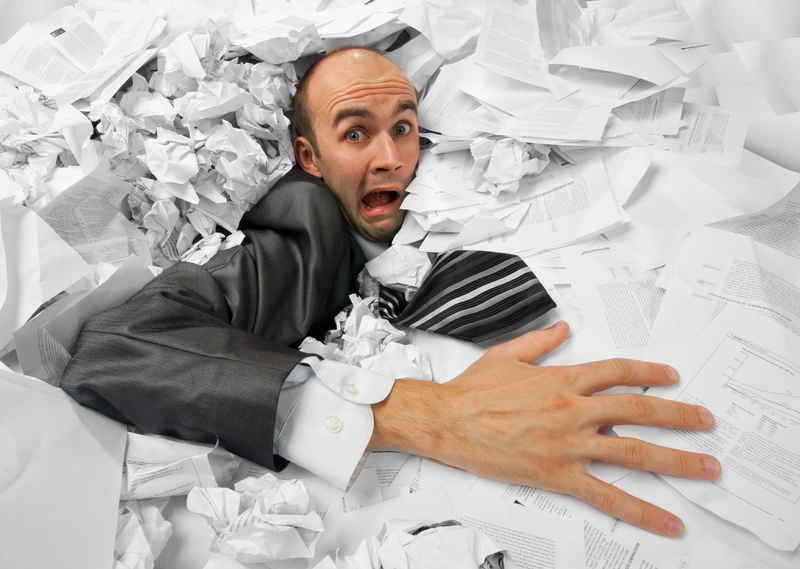Major Recycling Blunders
Posted on 28/10/2025
Major Recycling Blunders
Recycling is a critical aspect of waste management that can significantly reduce the impact on our environment. However, despite good intentions, many people make common mistakes that can hinder recycling efforts. In this article, we'll explore the major recycling blunders, their consequences, and how you can avoid them.
Blunder 1: Contaminating Recyclables
One of the most common mistakes is contaminating recyclables with food waste or non-recyclable materials. When contaminated items, such as greasy pizza boxes or plastic bags, are mixed with clean recyclables, they can compromise the entire batch. This contamination often results in the rejection of otherwise recyclable materials.

Blunder 2: Wishcycling
Wishcycling is the practice of placing items in the recycling bin with the hope that they can be recycled. While well-intentioned, this habit can do more harm than good. Items such as plastic bags, electronics, and non-recyclable plastics can disrupt the recycling process and damage recycling machinery.
Blunder 3: Neglecting to Rinse Containers
Recyclable containers that contain remnants of food or liquids can attract pests and contaminate recycling streams. It's essential to rinse out containers like cans, bottles, and jars before placing them in the recycling bin. A quick rinse goes a long way in maintaining the quality of recyclables.
Blunder 4: Misunderstanding Recycling Symbols
Many people assume that all items marked with recycling symbols are recyclable. However, not all plastics and materials with recycling symbols are accepted by local recycling programs. It's important to familiarize yourself with the specific guidelines of your local recycling program to avoid this common pitfall.
Blunder 5: Overlooking Non-Curbside Recyclables
Items such as batteries, electronics, and hazardous materials require special handling and should not be placed in curbside recycling bins. These items have designated collection points or recycling programs that ensure they are processed safely and correctly.
Blunder 6: Failing to Flatten Cardboard
Large cardboard boxes take up unnecessary space in recycling bins and trucks. Failing to flatten cardboard can lead to inefficient recycling collection and transportation. By flattening your cardboard boxes, you can help improve the efficiency of the recycling process.
Pros and Cons of Recycling
Recycling comes with its advantages and disadvantages, and understanding these can help us make more informed decisions.
Pros:
- Reduces waste sent to landfills and incinerators.
- Conserves natural resources such as timber, water, and minerals.
- Helps protect the environment by reducing pollution.
- Saves energy and reduces greenhouse gas emissions.
- Creates job opportunities in the recycling and manufacturing industries.
Cons:
- Requires significant infrastructure and investment.
- Contamination can compromise the entire recycling process.
- Not all materials can be recycled, leading to potential confusion.
- Recycling can be labor-intensive and costly for municipalities.
- Economic viability depends on market demand for recycled materials.
Tips for Effective Recycling
- Always check local recycling guidelines to ensure you're recycling correctly.
- Rinse your containers to remove any food or liquid residue.
- Avoid wishcycling by only placing accepted items in the recycling bin.
- Flatten your cardboard boxes to save space and improve efficiency.
- Keep non-recyclable items out of the recycling bin to prevent contamination.
- Utilize specialized recycling programs for hazardous materials and electronics.

Takeaways
- Contamination and wishcycling are significant issues that can hinder recycling efforts.
- Understanding and adhering to local recycling guidelines is essential for effective recycling.
- Rinsing containers, flattening cardboard, and avoiding non-recyclables can improve the recycling process.
- Recycling has both pros and cons, but it remains a crucial component of sustainable waste management.
Conclusion
Recycling is a vital practice for reducing waste and conserving resources, but it's essential to do it correctly. By avoiding major recycling blunders and following best practices, we can enhance the effectiveness of recycling programs and contribute to a healthier environment. Always stay informed about your local recycling guidelines, and take the necessary steps to ensure that your recyclables are clean and properly sorted. Together, we can make a significant impact through mindful recycling.
Latest Posts
Environmental Harm from Poor Waste Practices

 020 3744 5548
020 3744 5548










